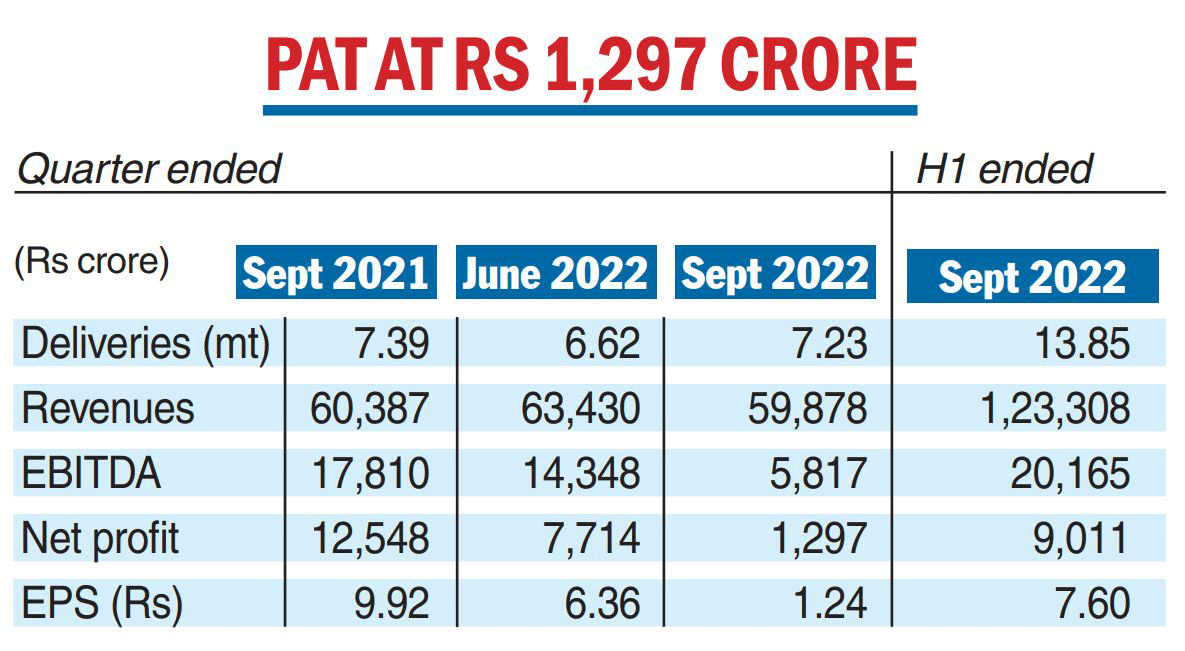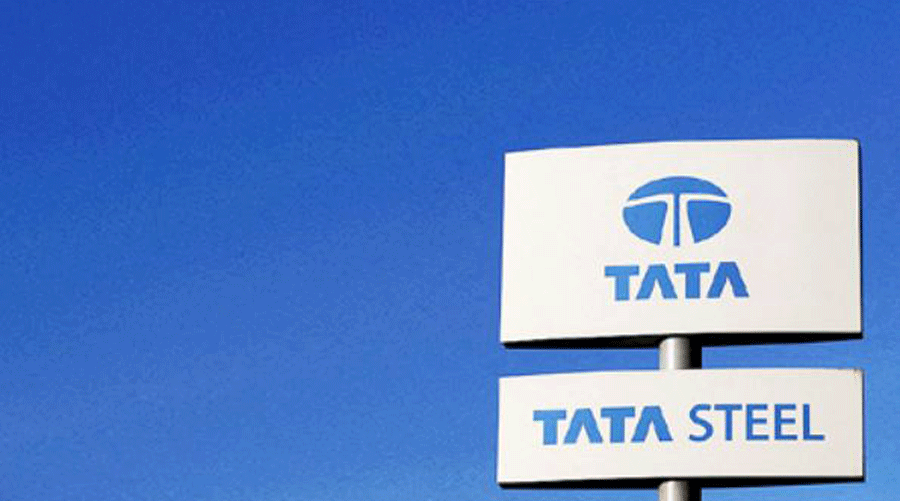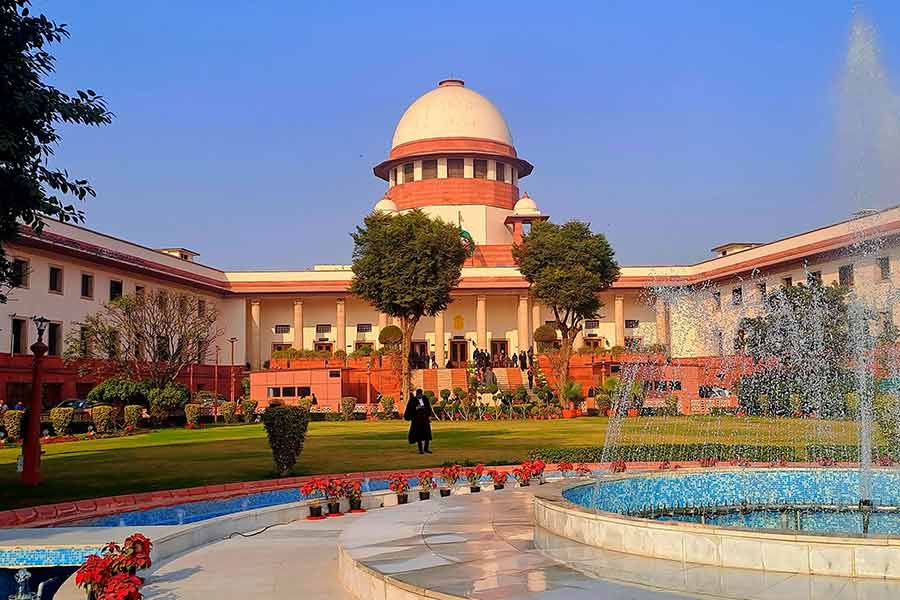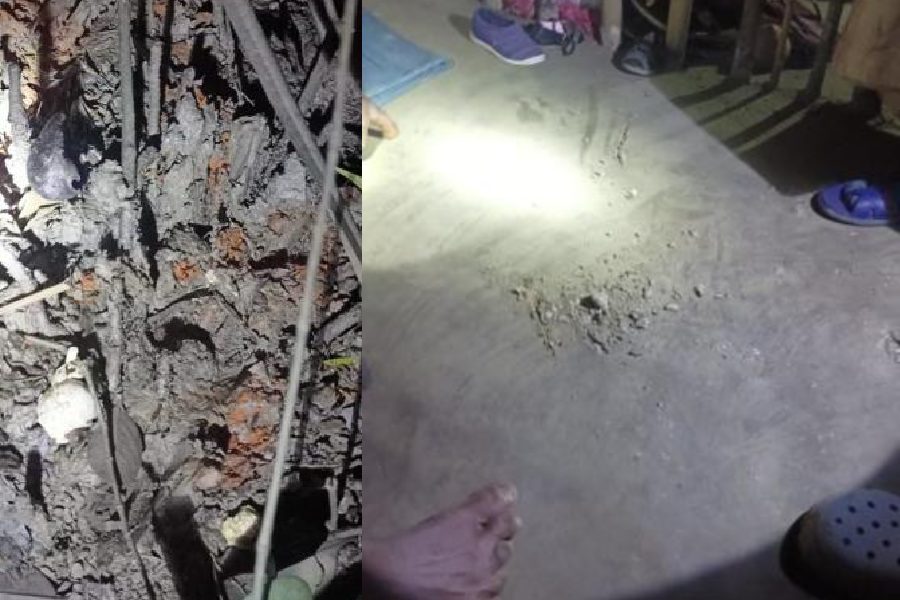Tata Steel has reported a lower-than-expected profit in the second quarter of the fiscal with profit after tax plummeting 90 per cent to Rs 1,297 crore from a high of Rs 12,548 crore in the same period of the last fiscal.
A slump in finished steel prices coupled with elevated raw material costs led by coking coal created margin compression, blunting the impact of a record sales volume in India.
The European business also reported a sharp drop in profitability but managed to end the quarter in the green.
The TSL management attributed the sharp decline in profit to a one-time expense on restarting newly acquired Neelachal Ispat Nigam Ltd, higher tax incidence in Europe and a non-cash charge on account of British Steel Pension Scheme (BSPS).
While earnings before interest, depreciation, tax and amortisation (EBIDTA) dropped to Rs 5,817 crore in Q2FY23 from Rs 17,810 crore in Q2FY22, revenue from the operations remained almost flat at Rs 59,878 crore compared with Rs 60,387 crore in Q2FY22, indicating margin compression.
T.V. Narendran, MD & CEO of TSL, held out hope that the second half would benefit from the demand boost in India, while cautioning that the performance of the European business could be worse than the first half, hobbled by high energy prices and weak demand.

Europe EBIDTA stood at Rs 1,788 crore compared with Rs 3,340 crore in Q2FY22. On a sequential basis, consolidated PAT was down 83 per cent while the revenue from the operations skid 5.6 per cent.
Deleverage
Tata Steel confirmed that it would not be able to deleverage its balance sheet by $1 billion this fiscal. Led by highest-ever dividend payout, the NINL acquisition and capex for Kalinganagar, gross debt climbed to Rs 87,516 crore at the end of September 30 compared with Rs 71,561 crore at the end of FY22.
“We have over performed in the last two years. There has been a big capital allocation on account of acquisition of NINL in Q2. We will reassess the situation at the end of the third quarter. I can certainly feel that the same quantum of deleveraging will not happen. We will be happy to push back to March 2022 level,” Koushik Chatterjee, executive director and group CFO, said.
The company’s primary objective now is not deleveraging, he said. “It will happen in natural course as soon as the business generates free cash flow in excess of what we require. Strategically, there is no change but we have to factor in market volatility, movement of working capital, cash flow.”
UK future
Tata Steel said it is preparing for all situations for the future of UK operations. The company has sought the UK government’s help to transition to sustainable steelmaking for the Port Talbot site. The discussion has been ongoing but without any result.
On Monday, Tata Steel said the proposal is with the UK government. “There is a new government in the UK. We want a decision sooner than later,” Chatterjee said.
“Internally conversations are going on about how we can prepare for all situations,” Narendran said when asked what TSL would do if it does not get the support sought of the UK government. “Whatever will be done will depend on the outcome of the government’s response,” he added.










